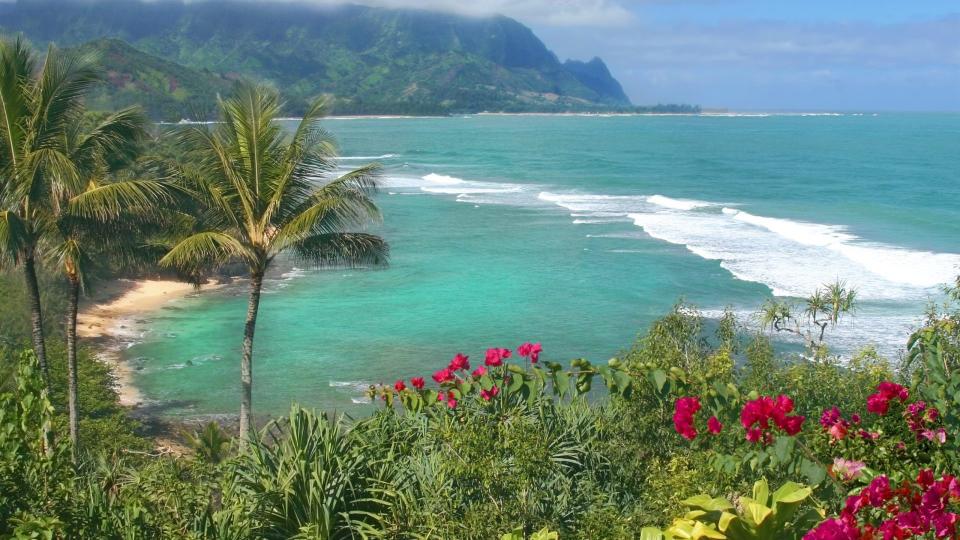7 Reasons $1 Million Will Only Last You 9 Years in Retirement in Hawaii

Retiring in Hawaii is the dream, but the cost of living there borders on astronomical. If you only have $1 million saved up for retirement, it’s not likely to last the rest of your life. In fact, it might only last about a decade before running out.
Before retiring in Hawaii, here’s what you need to know about the general cost of living and why $1 million might not take you as far as you think.
To compare, here is how long $2 million will last for Hawaii retirees.
Try This: 3 Cities To Retire In That Are as Awesome as Honolulu and San Francisco But Way Cheaper
Explore More: 4 Genius Things All Wealthy People Do With Their Money
Wealthy people know the best money secrets. Learn how to copy them.
Annual Cost of Living in Hawaii: $103,610
Paradise or not, Hawaii’s cost of living is bound to make even the most prepared retirees do a double-take. According to the Missouri Economic Research and Information Center, the overall cost of living in The Aloha State is 186.2. Everything there is more expensive than it is anywhere else in the U.S. and that’s saying something for a country that’s already known for its overall higher costs.
According to GOBankingRates’ research, here’s what a typical year looks like in terms of costs for the average person living in Hawaii:
Housing: $35,813
Utilities: $6,913
Groceries: $5,339
Transportation: $6,238
Healthcare: $9,485
Total (annually): $103,610
Considering these costs alone, $1 million will last approximately 9 years, 7 months and 25 days.
Be Aware: I’m a Financial Planner: 5 Ways Not To Spend Down Your Savings in Retirement
More Reasons Why $1 Million Will Only Last About 9 Years
Of course, everyone’s situation is different. You might, for example, not have to pay a mortgage once you retire. This alone could free up a substantial amount of cash. But you might also have other costs to worry about — and you could still be dealing with a mortgage payment.
Here are some of the biggest reasons, besides the overall high cost of living, why $1 million isn’t likely to last more than a decade in Hawaii:
Housing costs: According to Zillow, the average home value in Hawaii is $861,040. Assuming you’ve paid off your mortgage, you’re still going to have to spend money on homeowners insurance, property taxes, property maintenance and potentially HOA fees. And if you rent, you’ll need to factor in the rent itself plus any renters insurance or related fees.
Long-term care costs: The average person lives 77.5 years, according to the CDC. If you’re in overall good health and don’t have any major illnesses that run in your family, you could live much longer than that. The only issue is that you might still need to pay for long-term care. An annual policy costs anywhere from $1,700 to $7,225 for those ages 65 and up. Pay that for 10 years and you’re looking at $17,000 to $72,250 in total expenses — that’s a hefty chunk out of your initial $1 million.
Hobbies and interests: The average annual cost of living listed above doesn’t include those extras like travel or recreation. Your lifestyle and interests will make a big difference in how much you actually spend each year, of course. But traveling alone can be pricier since trips from Hawaii to other locations can be pricey.
Medical expenses: Even if you don’t need long-term care, you’ll still probably need to pay for some health-related expenses in your later years. The cost of living index for healthcare in Hawaii is 122 — far above the national average.
Taxes: Public and private pension income isn’t taxed in Hawaii, but you’ll need to pay taxes on things like IRA and 401(k) income. This isn’t accounted for in the nine-year timeline your $1 million could otherwise last.
Miscellaneous and other expenses: From emergencies to miscellaneous or one-time expenses that don’t quite fit into any one category, these costs can all add up. Your $1 million might still last the full night or so years even with these costs, but you’ll need to be careful. And if you have recurring debts — besides a mortgage — be sure to account for those.
Just because $1 million might not be enough to get you through your retirement years doesn’t mean you should give up on the dream of living there. You just might need to find other ways to supplement your retirement income, find ways to live more frugally or wait to retire a little longer until you have a larger nest egg.
More From GOBankingRates
This article originally appeared on GOBankingRates.com: 7 Reasons $1 Million Will Only Last You 9 Years in Retirement in Hawaii

 Yahoo Finance
Yahoo Finance 